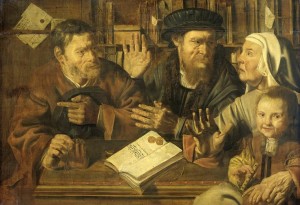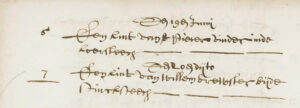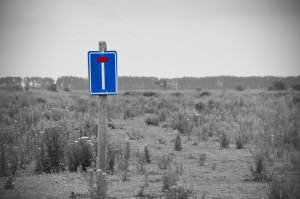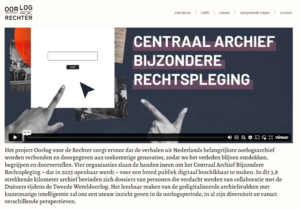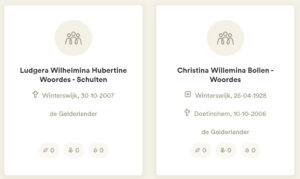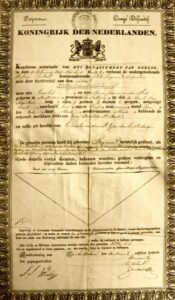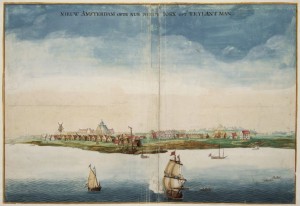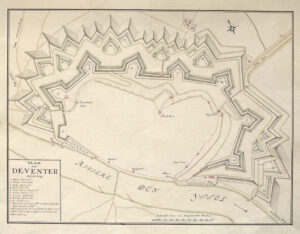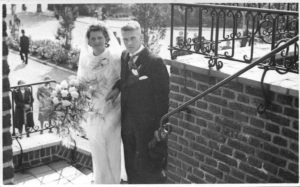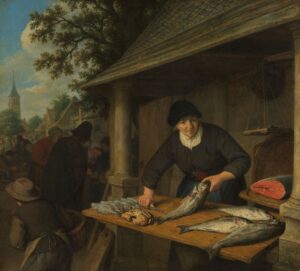Notarial records are some of the richest sources of information about our ancestors' lives. They may contain wills, estate inventories, contracts, sales, and a range of other voluntary legal transactions. They are an important source for researching emigrants from the Netherlands. Many people went by a notary before leaving, for example to enter into a work contract or give a power of attorney to handle their affairs. Emigrants can still appear in notarial records after departure, if they owned … [Read more...]
About this website
Creating a website like this is a fun activity. There are so many options, so many choices. What do visitors want? What do I want? In this blog I will describe some of the things I encounter in developing and maintaining this website.
Quick tip – Burials under name of husband or father
Many burial registers and related registers like burial fees registers recorded entries under the name of the head of household. Entries might be for the wife of Jan Claesz, or the child of Pieter Willems. If you cannot find a married woman in a burial register, check under her husband's name. If you cannot find an unmarried person, such as a minor child, in a burial register, check under their father's name. … [Read more...]
The Genealogical Unproof Standard for Brick Walls
I think the term "brick wall" is used too easily for any ancestor where you don't know the parents. I think you shouldn't call someone a brick wall ancestor unless you gave it your best shot. Many genealogists are familiar with the Genealogical Proof Standard (GPS), as formulated by the Board for Certification of Genealogists. The GPS as has five components: Reasonably exhaustive research Complete and accurate source citations Careful analysis and correlation of evidence … [Read more...]
Dutch Genealogy News for September 2023
Here are the new sources, websites, projects, and other news announced last month. Sources The resolutions of the States-General from the 1700s have been transcribed and can be searched via a prototype of a search engine. Notarial records of Schiedam 1614-1771 have been automatically transcribed and can be searched at Transkribus. Court, notarial, and town records of Chaam and Terheijden have been automatically transcribed and can be searched at VerledenTekst. Various birth, … [Read more...]
Quick tip – Mensenlinq
Mensenlinq is a website where many current newspapers publish their family announcements. It is a good place to find the recently deceased. It can be difficult to find recent deaths since death records are not public for 50 years and recent newspapers are not published online due to copyrights. Mensenlinq allows you to search for the announcements that families placed in newspapers. See the source Family Announcements for more information about this source. By default, Mensenlinq only … [Read more...]
Ask Yvette – Military passports in the 1800s
Reader Freddy Walhof asked me about the practice of military passports in the 1800s. In the military service record of an enlisted man, the column for end of service said "gepasporteerd" which means "passported." Freddy wondered if an actual passport was issued or if this was an administrative term only. At the end of service, enlisted men were issued a military passport. This contained an extract of their service record, including that they had fulfilled their military duties. Since these … [Read more...]
Quick tip – Identical place names in New and Old Netherland
If you are doing in New Netherland, the Dutch colony in what later became New York and the surrounding area, you may come across place names that exist in both the (old) Netherlands and New Netherland. When you come across a place in records and you cannot find the person in the records of that town, consider that perhaps the other place is meant. For example, a New Amsterdam marriage record may refer to a bride from "Vlissingen" without specifying whether that is the town on Long Island or the … [Read more...]
Dutch Genealogy News for August 2023
Here are all the new sources, projects, and other news announced in the past month. Sources Hattinga's atlas of Gelderland, Overijssel, and Groningen from the 1740s has been digitized and can be consulted at the website of Collectie Overijssel. Cause of death notes from the east of North Brabant have been digitized and indexed. Check the index at the BHIC website. Verdicts of the Court Martial in 's-Hertogenbosch 1839-1919 have been indexed and scanned. See the BHIC website. Guid … [Read more...]
Quick tip – No marriage license or bond
In the Netherlands, there are no marriage licenses or marriage bonds like you may be familiar with in other countries. The only way to get married was to have banns read, typically for three consecutive weeks. That gave others the opportunity to raise objections, for example if one of the parties was promised to another, or if the couple was too closely related. In extraordinary circumstances, you may find dispensations to have the banns read all on the same day, but that is extremely rare. … [Read more...]
Dutch Ancestors Research Plan – 17th and 18th century
In my Level-Up Challenge, I defined six levels of ancestral profiles. In this post, I will give you a basic research plan for an ancestor living in the 17th and 18th century for levels 1-4. Level 1: Names only I usually find the name of the person in records of somebody else I am researching. No specific research plan needed. Level 2: Vital statistics The civil registration was introduced in 1811 in most parts of the Netherlands (around 1795 for some parts of Limburg and Zeeland). Before … [Read more...]
